What some may not now is that when Mark Millar intially began working in American comics, he was mentored by another Scottish comicbook creator, Grant Morrison, who had established himself earlier in the British Invasion during the 1980s.
By all accounts Millar used to bounce ideas off of Morrison, who would contribute ideas of his own occasionally and some would be incorperated into Millar's stories. Two series that were confirmed to take place in the collaborative period include Millar's Red Son book (an Elseworld were Superman landed in Soviet Russia, worth reading in its own right) and his Authority run (patchy, with some good ideas in there).
Millar would eventually fall out with Morrison in regard to creditting where exactly his ideas began and Morrison's started, going so far as to say that no such collaboration existed in some interviews, while Morrison tends to possibly scale up the amount of credit he feels he deserves.
Some scenes could be interpreted as being "Uniquely Morrison" in tone, but I thought that I should focus on two examples that make for a fascinating parallel with each other. One from the Authority, a cynical deconstruction of superheroes written at it's most bleak, and All Star Superman, an uber-idealistic story focusing on the genuine good supeheroes can do as well as a treatise as to why Superman is awesome (something Morrison returns to in Final Crisis).
First up, the older of the two examples. From the storyline Earth Inferno, where a supervillain (a British heart surgeon from the 1960s who murdered three entire African countries in alphabetical order) manages to regain his enormous magical superpowers and goes on a rampage.
The Earth has been completely evacuated into parallel realities to reduce the collateral damage, but since the guy has complete control over time and space now, he gloats and tortures the Authority as his powers (won't say how) slowly increase the longer he uses them.
Just as all seems lost, the Midnighter shows up with the entire superhero population of a world where all the genders are reversed from the regular Wildstorm universe,
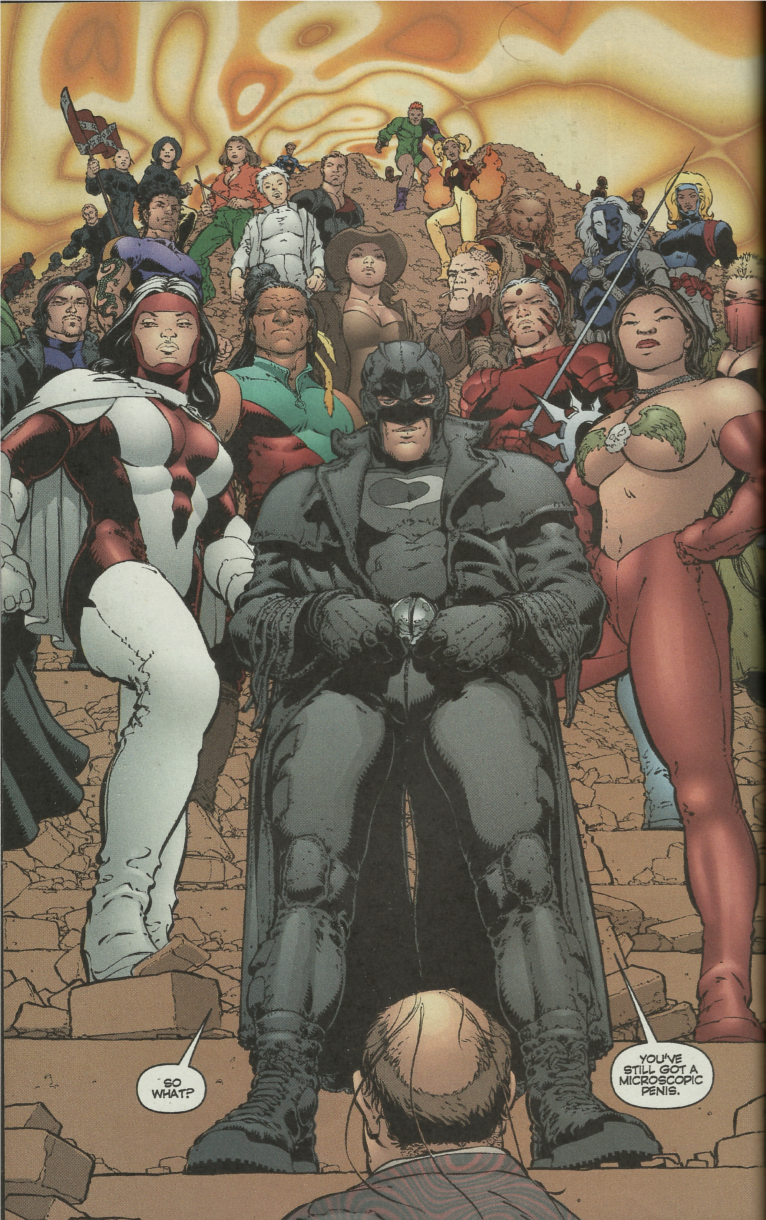
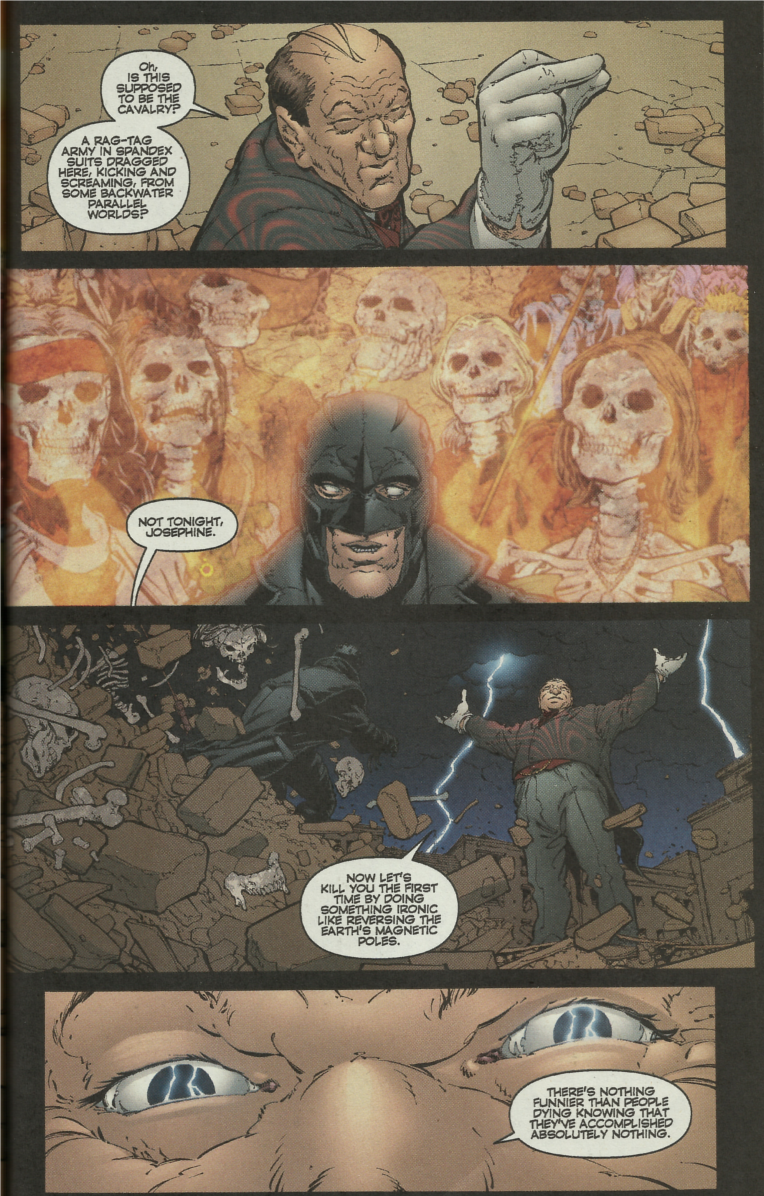
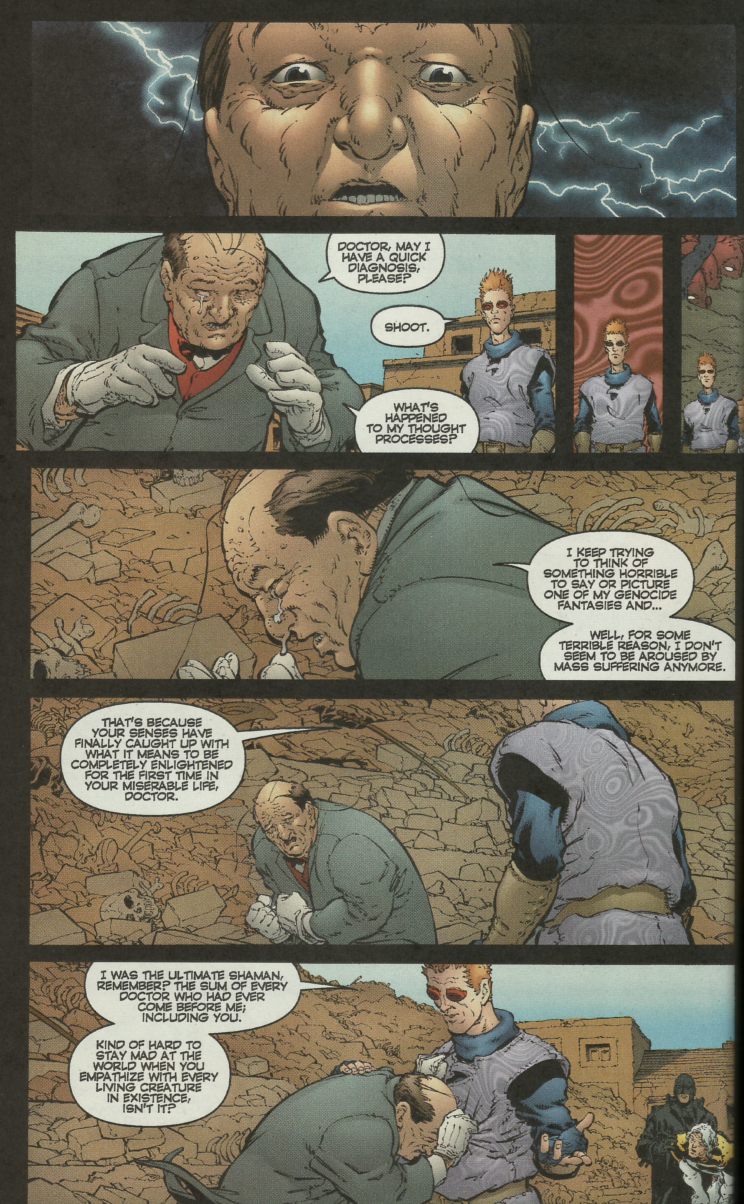
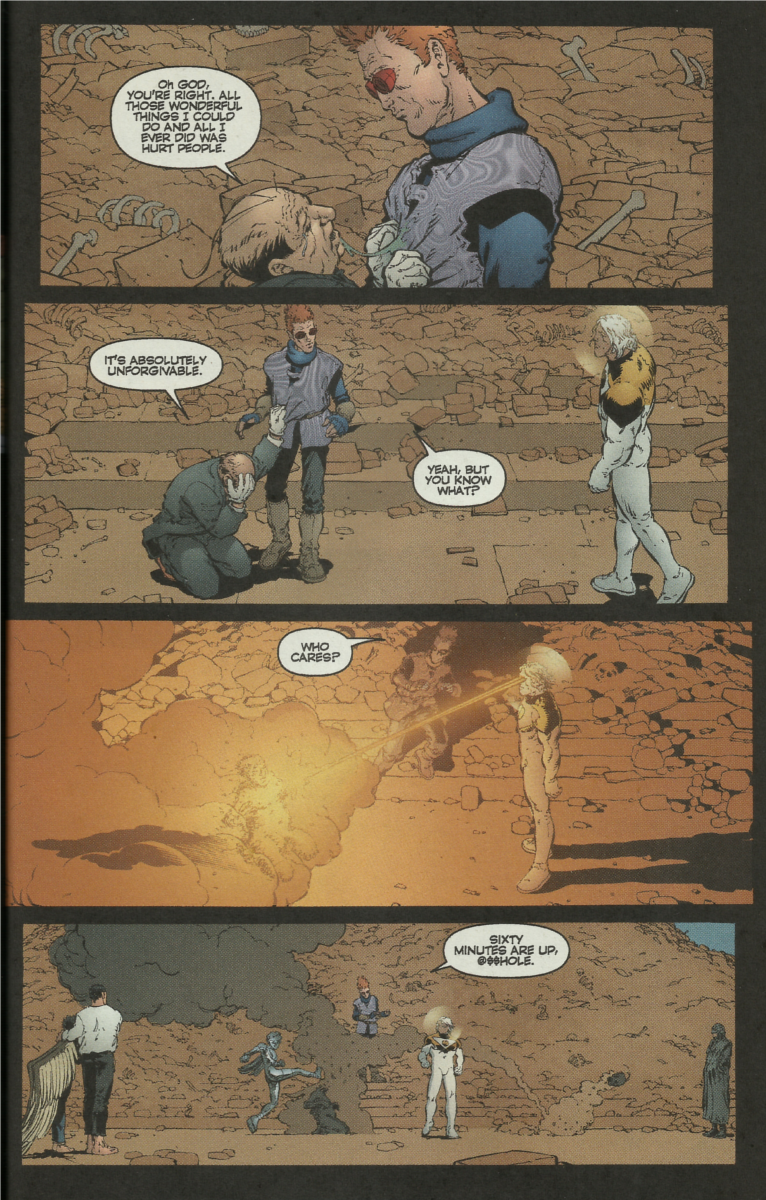
So in an issue drawn by Frank Quitely, a supervillain gains superpowers, goes on a rampage, and after a set time-limit is up, his powers increase to the point he achieves cosmic awareness and realises what a horrible person he was.
Cut forward to All-Star Superman, where Lex Luthor has lethally poisoned Superman by overdosing him with solar energy, has given himself a 24-hour serum to duplicate his powers, and has seemingly defeated his foe once and for all.
He drags Superman outside to gloat about his victory,
Lex is emotionally broken by this ordeal and is executed shortly afterwards. Personally I prefer the movie's adaption of this scene, though that might be blasphemy, as the revelation has enabled him to achieve a level of empathy with Superman, and thus accept Superman's accusation. This makes him attempt to make things right before facing his death with dignity, and provides people with the means to undo his mistakes...
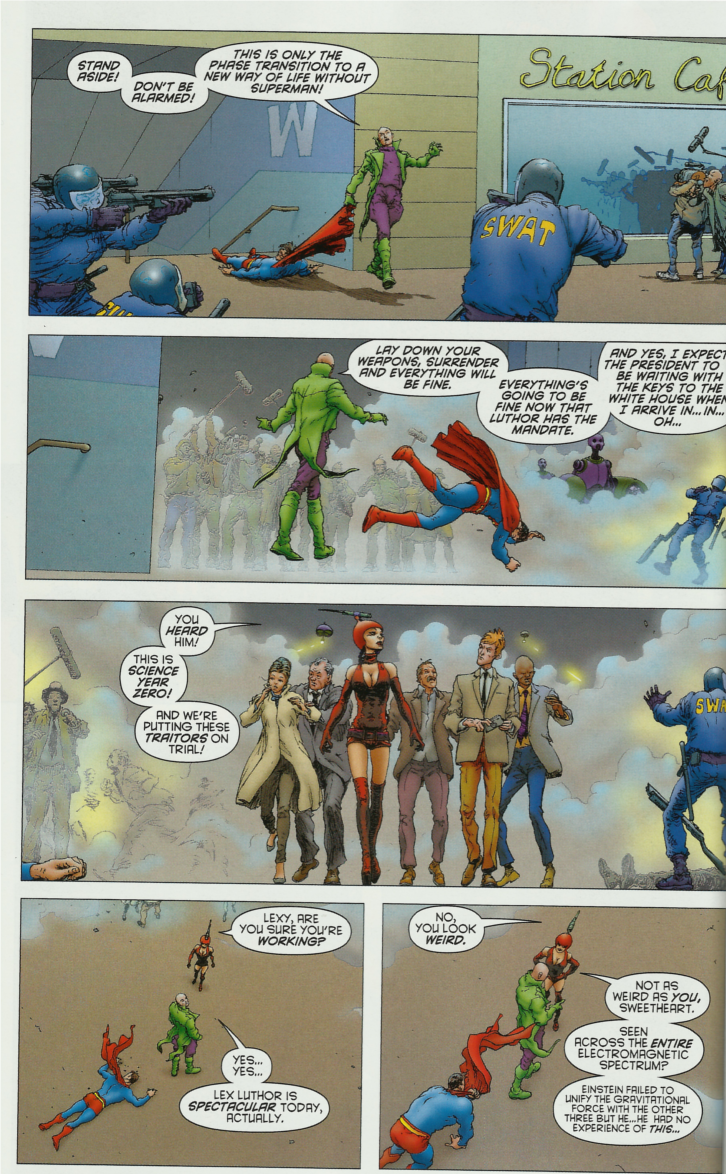
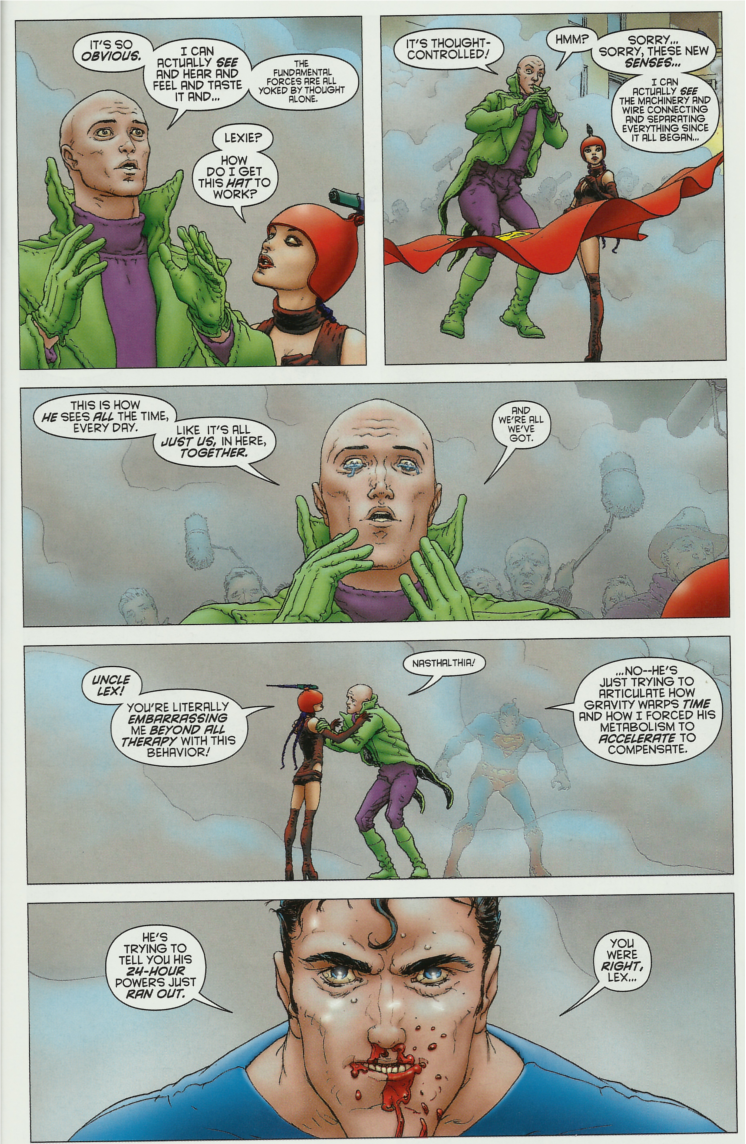
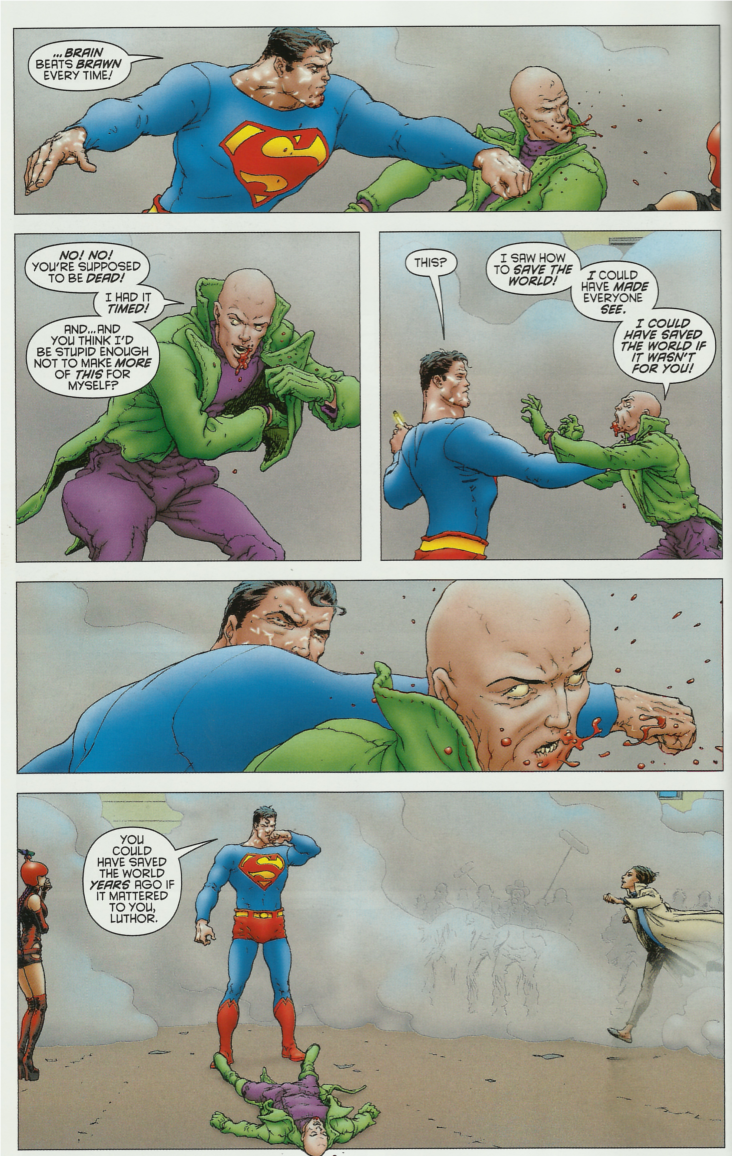
So... this is another issue, drawn by Frank Quitely, a supervillain gains superpowers, goes on a rampage, and after a set time-limit is up, his powers increase to the point he achieves cosmic awareness and realises what a horrible person he was.
Who came up with it first is up to debate, but the fact there are such similarities between two series with such different tones is interesting, to me at least.
No comments:
Post a Comment